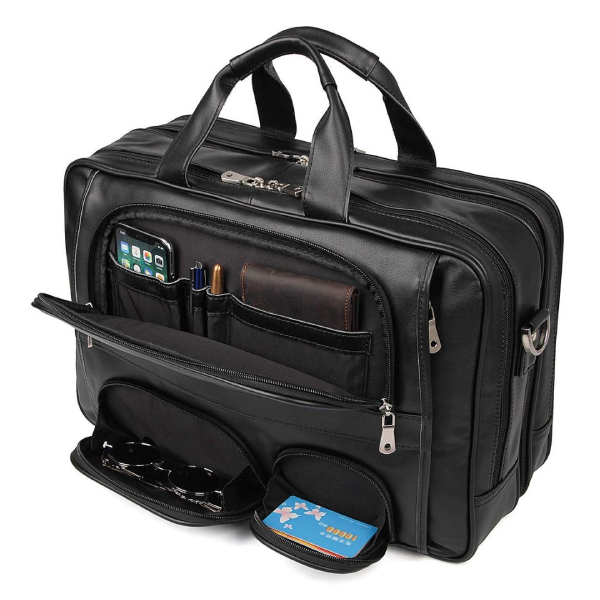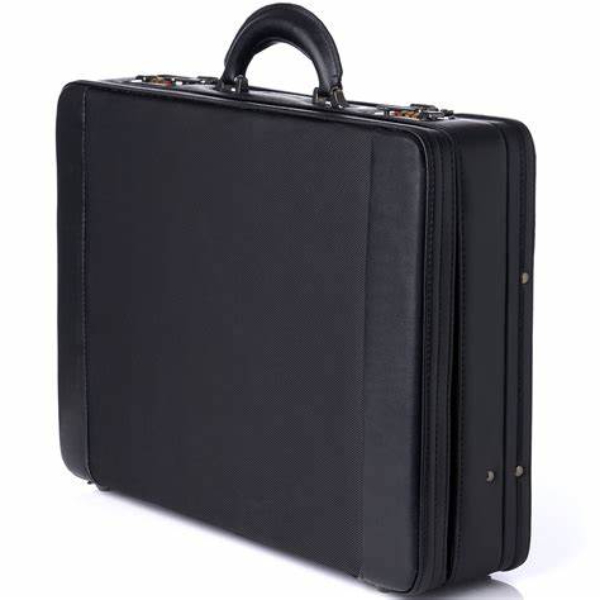The Origin of ‘Yo Homie, Is That My Briefcase?’
The phrase ‘Yo homie, is that my briefcase?’ has its roots in urban slang. It reflects a blend of influences from African-American Vernacular English and street culture. The word ‘Yo’ typically grabs attention. ‘Homie’ stands for ‘homeboy’, a term of endearment among friends. The complete phrase might suggest a playful or confrontational interaction over possession, sometimes implying a mix-up or challenge.

Its popularity spiked with its use in comedy and drama. This phrase can trace its infamy back to a memorable scene from a film or show, where it could have been used in a humorous or pivotal moment. The exact origin remains hazy, as is the nature of many slang expressions, but it is clear that the phrase caught on due to its catchy rhythm and urban vibe.
The use of ‘briefcase’ in the phrase is particularly striking. It adds a level of sophistication or professionalism to the urban setting. It can also imply a story of ambition or a hustle mentality prevalent in city life.
So, while the phrase ‘Yo homie, is that my briefcase?’ seems simple, it carries deep cultural resonances. It spans themes of friendship, identity, and ownership. It serves as a linguistic snapshot of a certain time in urban life, wrapped in the guise of a catchy, rhetorical question.
Exploring the Cultural Significance of the Phrase
The phrase ‘Yo homie, is that my briefcase?’ carries more than a casual connotation. It dips into a deep well of cultural significance that cannot be overlooked. To understand its impact, we must explore the layers of meaning it unveils in various social contexts.
First, the phrase acts as a bridge linking urban identity with mainstream consciousness. It reflects the narratives and daily interactions specific to urban communities. The mention of a ‘briefcase’ hints at the aspiration for professional success that resonates with many striving in city environments.
Additionally, the phrase serves as a symbol of camaraderie and shared experiences. When uttered among friends or peers (‘homies’), it reinforces social bonds and a sense of belonging. These two simple words, ‘yo homie,’ pack a punch of recognition and relationship. Just as “yo homie” fosters connections, an attorney’s briefcase symbolizes professionalism and shared journeys in the pursuit of justice and understanding.
Moreover, the phrase has broader social implications. It aligns with themes of ownership and territoriality that are integral to understanding urban dynamics. The question of ‘is that my briefcase?’ points to issues of personal property and respect among individuals.
Beyond these interpretations, ‘Yo homie, is that my briefcase?’ encapsulates a form of linguistic resistance. It often stands as a playful challenge to stereotypes and a reclaiming of agency within certain cultural groups.
In summary, the phrase is rich with cultural significance, from reflecting aspirations and affirming relationships to commenting on societal structures. Each word contributes to its powerful status within the cultural lexicon.
The Context of Use: When and Where
The phrase ‘Yo homie, is that my briefcase?’ emerges in various settings. It often appears in urban scenarios, amidst lively street conversations. Friends greet each other with this line in informal gatherings. It carries the familiarity of local slang within city bounds.

In media, the phrase finds its place in film and TV scenes depicting urban culture. Writers use it for an authentic touch or comedic effect. It’s heard in high-energy moments, perhaps where characters confront each other playfully or seriously.
Interestingly, it’s not just confined to the streets from which it came. It’s used in more diverse settings, highlighting the mobility of cultural phrases. From college campuses to online platforms, the phrase travels and adapts.
The timing of its use is equally crucial. It appears often as a conversational icebreaker. It can be a light-hearted way to address confusion or claim ownership. At times, it signals a serious tone, depending on the speaker’s intent and the context.
The phrase also thrives in the realm of social media. Young people share it in memes and tweets, further cementing its place in the cultural conversation. This digital spread shows how phrases can leap from the spoken word to the online world. The MP5 briefcase gun has become a popular meme, illustrating how phrases and images merge in social media to enhance cultural narratives.
In conclusion, ‘Yo homie, is that my briefcase?’ is not tied to a single place or moment. It has a fluid context of use, reflective of the vibrant nature of urban slang.
Impact on Popular Culture and Media
The phrase ‘Yo homie, is that my briefcase?’ has left a unique imprint on popular culture and media. Its usage extends beyond casual street conversations, marking its territory on the silver screen and beyond. This catchy line is a favorite for scriptwriters and directors. It adds authenticity to scenes depicting urban life and stands out as a memorable catchphrase. Often, characters using the phrase in movies or TV shows are painted with shades of coolness or street credibility. The contrast between an attache case and a briefcase highlights the evolving styles in urban culture, much like the memorable phrase that defines street cred in media.
In music, the influence of the phrase is no less significant. Hip-hop artists, known for weaving slang into their lyrics, have adopted the phrase too. It contributes to the gritty, realistic texture of their music. The phrase resonates with listeners, evoking images of city life and its intricacies.
In terms of marketing, brands have also capitalized on the phrase’s cool factor. It’s been used in campaigns targeting youthful, urban audiences. The phrase suggests a product or service is not only current but also embedded in street culture.
The impact of ‘Yo homie, is that my briefcase?’ on popular culture is profound. It reflects the power of language to transcend its origins, influencing conversations across various platforms. From the corners of city blocks to the buzz of social media feeds, the phrase continues to thrive, always ready to add a dash of urban flair.
A Look at Linguistic Variation and Slang
Slang terms like ‘yo homie, is that my briefcase?’ showcase linguistic variation. These variations form within specific groups and regions. Often, they reflect the group’s identity and social relations. Language evolves, and slang is a clear sign of this constant change.
Slang serves many purposes. It can create a sense of belonging among users. It distinguishes insiders from outsiders. For youth, in particular, it’s a tool for building a unique cultural identity.
Here are some points about linguistic variation and slang:
- It’s Dynamic: Slang words can pop up suddenly. They often spread fast, then fade just as quickly.
- Cultural Markers: Such terms are markers of cultural trends. They’re shaped by societal changes and influences.
- Regional Flavor: Slang can vary by region, adding local flavor to the language.
- Technological Influence: With social media, slang terms can go viral globally. This wasn’t possible before the digital age.
Slang like ‘yo homie, is that my briefcase?’ also bridges generations. Older generations may not use it in the same way, if at all. This gap sometimes leads to misunderstandings. But it also marks a distinct cultural and linguistic shift between age groups.

In brief, linguistic variation and the creation of slang are complex. They are key to understanding a language’s evolution. And phrases like this one give us a peek into the dynamic nature of English.
Understanding the Social Implications
The phrase ‘Yo homie, is that my briefcase?’ is not just a casual slang term. It carries weighty social implications. These implications offer a window into the dynamics of urban life and social interactions.
- Symbol of Respect: At its core, this phrase can signify a test of respect. It can challenge someone regarding their control over personal items or space.
- Economic Implications: The use of ‘briefcase’ adds an economic layer. It often ties in with inner-city stories of striving for financial success and legitimacy.
- Identity and Belonging: The term ‘homie’ directly relates to community identity. It cements one’s place within a social group, creating a shared sense of belonging.
- Negotiating Power: The phrase can be a tool for negotiating power and hierarchy within a group. It’s a way to establish or question one’s standing in social order.
- Combating Stereotypes: This phrase also empowers speakers against certain stereotypes. It allows individuals to claim their narrative within an often misunderstood or misrepresented culture.
In light of these points, ‘Yo homie, is that my briefcase?’ is more than an urban quip. It reflects the complex interplay of social notions such as respect, identity, power, and economic mobility.
The Phrase in Different Languages and Cultures
The reach of the phrase ‘Yo homie, is that my briefcase?’ extends beyond English. Different languages and cultures have variations of this phrase, adapting it to fit their own urban lexicon. Here, we explore how the phrase is interpreted and used across various global communities.
- Linguistic Adaptation: Like many English phrases, ‘Yo homie’ undergoes translation and transformation. It often retains its playful or challenging tone but gets localized to suit regional slang.
- Cultural Resonance: In other cultures, similar phrases may exist. They reflect the same urban hustle and camaraderie but are built on local dialects and societal norms. The core sentiment of the phrase remains intact.
- Shared Understandings: Despite language barriers, the essence of the phrase can be universally recognized. It represents a universal theme of friendship and identity that resonates across borders.
- Divergence: However, the contexts in which such phrases are used can greatly differ. What is humorous or confrontational in one culture may not translate the same in another. Understanding these nuances is vital.
- Pop Culture Exchange: Global media often borrows phrases from different cultures. This phrase may appear in subtitled or dubbed content, providing an interesting case study in cultural exchange.
The phenomena of phrases like ‘Yo homie, is that my briefcase?’ reaching different languages and cultures reflect the fluid nature of communication. In a globalized world, the transmission of cultural expressions is inevitable. It shows how language evolves and adapts, continuously shaped by human interactions and societal changes.
Preserving Cultural Phrases in a Globalized World
In today’s interconnected globe, maintaining cultural phrases like ‘Yo homie, is that my briefcase?’ is vital. Globalization tends to dilute local idioms and slang, merging them into a more universal vocabulary. Yet, preserving these unique expressions is crucial for several reasons.
- Cultural Identity: Phrases reflect a community’s identity. Keeping them alive upholds the history and values of the group.
- Linguistic Diversity: Protection of dialects and slang enriches global linguistic diversity. It ensures the English language remains vibrant and varied.
- Educational Value: Such phrases can teach about cultural contexts and social phenomena. They become resources for learning and understanding diverse cultures.
- Artistic Inspiration: Artists and creators often draw from these phrases. They inspire music, literature, and film, adding depth to creative works.
How, then, can we preserve these phrases? Here are a few strategies:
- Encourage Usage: People should use local slang in daily conversation. This keeps it relevant and in circulation.
- Document and Record: Linguists and historians can record these phrases. This helps in studying their origins and evolution.
- Cultural Exchange: Sharing local expressions with outsiders can foster appreciation. It forms a bridge between different cultures.
As we navigate a world where borders are less defined, and cultures blend, we mustn’t lose the cultural phrases that contribute to our collective identity. ‘Yo homie, is that my briefcase?’ is more than just words; it’s a cultural artifact worth preserving.

